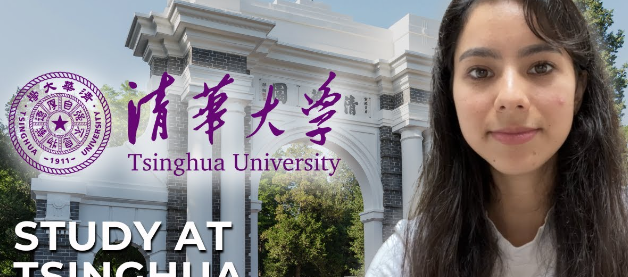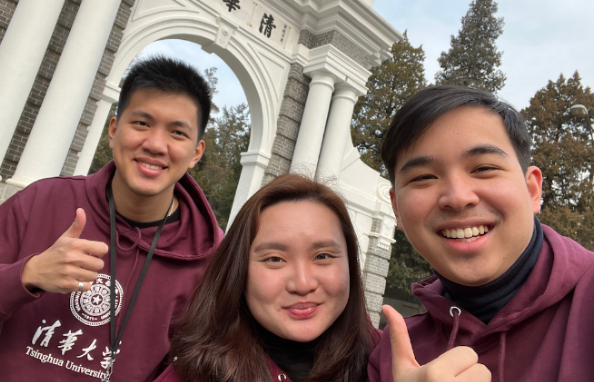Title Answer: Tsinghua University requires a minimum IB score of 38, with specific subject and overall academic excellence.
Table of Contents
Overview of Tsinghua University Admissions
General Admission Criteria
Tsinghua University, renowned for its academic excellence, sets high standards for admission. The general admission criteria encompass a holistic review of the applicant’s academic achievements, extracurricular involvement, and personal qualities. Candidates must demonstrate exceptional academic performance, typically reflected in their GPA or equivalent scores. The university places significant emphasis on STEM subjects, expecting a deep understanding and strong grades in mathematics, sciences, and technology-related courses.

For students involved in research, Tsinghua values publications or participation in major academic competitions. Participation in national or international academic competitions can greatly bolster an applicant’s profile.
Specific Requirements for International Students
International students face a highly competitive admissions landscape at Tsinghua University. The university has specific criteria tailored to assess the diverse backgrounds of international applicants effectively.
- Language Proficiency: Non-native speakers must provide proof of Chinese or English language proficiency.
- Academic Records: International applicants must submit all relevant academic transcripts, standardized test scores, and any other certificates that demonstrate academic competence. A GPA of 3.5 or above on a 4.0 scale is usually the benchmark.
- Standardized Tests: Depending on the chosen program, international students might need to submit scores from standardized tests like the SAT, ACT, GRE, or GMAT. For engineering and science programs, a GRE quant score in the 90th percentile is often the minimum requirement.
- Letters of Recommendation: Applicants must provide letters of recommendation, preferably from academic advisors or professors who can attest to the applicant’s academic abilities and potential.
Understanding the IB Program
Core Components of the IB Diploma
The International Baccalaureate (IB) Diploma is a challenging and balanced education program that prepares students aged 16 to 19 for success at university and life beyond.
- Theory of Knowledge (TOK): This component encourages critical thinking about knowledge itself, questioning the bases of knowledge and how it is acquired.
- Extended Essay (EE): Students undertake independent research through an in-depth study of a question relating to one of the DP subjects they are studying. The EE requires approximately 40 hours of work and concludes with a 4,000-word paper.
- Creativity, Activity, Service (CAS): CAS involves students in a range of activities alongside their academic studies. The three strands of CAS enhance personal and interpersonal development, providing a counterbalance to the academic rigors of the IB.
Grading and Assessment in IB
The IB Diploma Program uses a criterion-referenced approach to assessment.
- Point System: Each of the six subjects and the additional diploma components of TOK and the EE are graded on a scale from 1 (minimum) to 7 (maximum). Therefore, the total score for a Diploma candidate can range from 24 to 45 points.
- Assessment Methods: Assessment in the IB Diploma Program takes various forms, with an emphasis on both internal and external assessments. External assessments include exams, essays, and research papers, while internal assessments involve oral presentations, practical work, and projects.
- Quality Assurance: The IB uses both internal and external assessment methods to ensure a balanced and fair assessment of student work.
Tsinghua University’s IB Requirements
Tsinghua University, one of the premier institutions in the world, has specific requirements for students pursuing the International Baccalaureate (IB) Diploma. Understanding these requirements is crucial for IB students aiming to apply.
Minimum IB Score for Eligibility
However, competitive applicants typically have scores that are higher than the minimum.
- Score Distribution: It is essential that the points are evenly distributed across subjects, with no score below 5 in any higher-level subject.
- Higher Level Subjects: Students are expected to score at least 6 in each higher-level subject related to their intended field of study.
Subject-Specific Requirements and Recommendations
Different faculties within Tsinghua University may have varying requirements based on the rigor and demands of the program.
- STEM Programs: For programs in science, technology, engineering, and mathematics, higher-level (HL) subjects should include Mathematics and at least one science subject (Physics, Chemistry, or Biology).
- Humanities and Social Sciences: For these programs, HL subjects should include at least one of the humanities/social sciences subjects (e.g., Economics, History, or Geography).
Additional Considerations for IB Students
In addition to academic scores, Tsinghua University looks at the holistic profile of the candidate.
- Extended Essay (EE) and Theory of Knowledge (TOK): A grade of A or B in EE and at least a C in TOK can significantly enhance an application.
- Extracurricular Activities: Proven leadership and participation in extracurricular activities related to the chosen field of study can be a differentiator.
- Interviews: High-scoring candidates may be invited for interviews, and performance in these interviews can play a crucial role in the final decision.
Application Process for IB Students
Applying to Tsinghua University as an International Baccalaureate (IB) student involves a systematic process.
Documentation and Transcript Submission
Gathering and submitting the correct documentation is the first step toward a successful application. IB students must:
Submit Official Transcripts
Provide your IB transcripts along with any other high school records. Tsinghua University requires detailed records of your academic performance.
Provide Proof of Language Proficiency
Non-native Chinese speakers must submit HSK scores, while non-native English speakers should provide TOEFL or IELTS scores, meeting the minimum university requirements.
Letters of Recommendation
Submit at least two letters of recommendation from teachers or counselors who can attest to your academic abilities and character.
Submit an Extended Essay and TOK results
These documents showcase your research skills and critical thinking abilities.
Deadlines and Key Dates for Application
Adhering to deadlines is critical in the application process.
- Application Opening Date: Typically, applications open in October or November.
- Submission Deadline: The deadline for submission usually falls in March.
- Notification of Interview: Shortlisted candidates are usually notified about interviews by April.
Interview and Assessment for IB Applicants
The interview is a significant component of the application process, providing an opportunity for the university to assess the candidate’s suitability.
- Preparation: Understand the program you are applying to and align your experiences and aspirations with the program’s offerings.
- Interview Focus: Be prepared to discuss your IB coursework, extended essay, and how your profile aligns with the ethos of Tsinghua University.
- Assessment Criteria: Interviewers assess candidates based on their academic potential, leadership qualities, and the ability to contribute positively to the university community.

Tips for IB Students Applying to Tsinghua University
Navigating the application process to one of the world’s leading universities can be daunting.
Preparing a Strong Application
A strong application is coherent, well-prepared, and reflective of your academic and personal journey.
Academic Excellence
Highlight your strongest IB subjects, particularly those relevant to your desired major. Achieving high scores (6 or 7) in Higher Level subjects can set you apart.
Detail Your Extended Essay
Your Extended Essay showcases your research skills.
Demonstrate Mastery in Theory of Knowledge (TOK)
Your ability to question and analyze knowledge reflects your critical thinking skills, a trait highly valued at Tsinghua University.
Extracurricular Activities and Personal Statement
Your extracurricular activities and personal statement breathe life into your application, showing who you are beyond grades.
Strategic Extracurriculars
Engage in activities that align with your intended field of study. Leadership roles, competitions, and relevant internships add depth to your application.
Craft a Compelling Personal Statement
This is your chance to tell your story. Articulate your passion for your chosen field, and how your experiences and IB education have prepared you for this next step.
Connect Your Activities to Your Goals
Show how your extracurriculars have shaped your skills and character, and how these will help you contribute to the Tsinghua community.
Seeking Recommendations and References
Letters of recommendation provide a third-party perspective on your abilities and potential.
Choose Wisely
Select teachers or supervisors who know you well and can speak specifically about your strengths, achievements, and growth.
Provide Context
Help your recommenders by providing a summary of your accomplishments and experiences, especially those you want them to highlight.
Recommendation Letter Focus
A strong letter will not just praise but provide detailed examples of your academic rigor, leadership, perseverance, and any unique contributions you made to your school or community.

